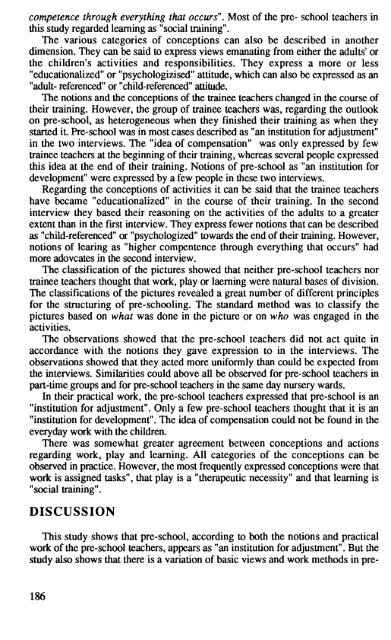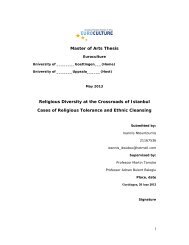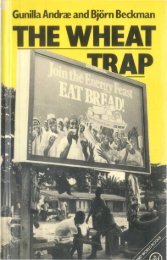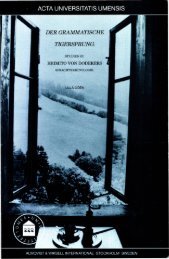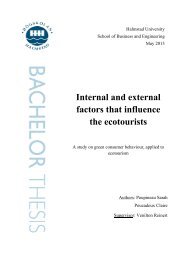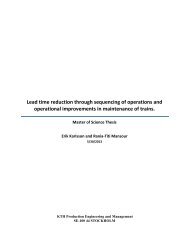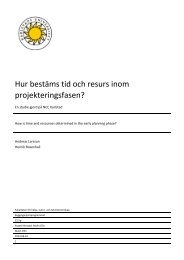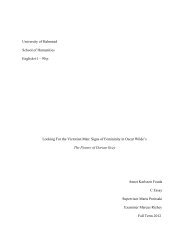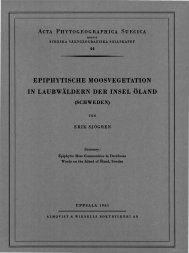fulltext - DiVA Portal
fulltext - DiVA Portal
fulltext - DiVA Portal
- No tags were found...
Create successful ePaper yourself
Turn your PDF publications into a flip-book with our unique Google optimized e-Paper software.
competence through everything that occurs". Most of the pre- school teachers inthis study regarded learning as "social training".The various categories of conceptions can also be described in anotherdimension. They can be said to express views emanating from either the adults' orthe children's activities and responsibilities. They express a more or less"educationalized" or "psychologizised" attitude, which can also be expressed as an"adult- referenced" or "child-referenced" attitude.The notions and the conceptions of the trainee teachers changed in the course oftheir training. However, the group of trainee teachers was, regarding the outlookon pre-school, as heterogeneous when they finished their training as when theystarted it. Pre-school was in most cases described as "an institution for adjustment"in the two interviews. The "idea of compensation" was only expressed by fewtrainee teachers at the beginning of their training, whereas several people expressedthis idea at the end of their training. Notions of pre-school as "an institution fordevelopment" were expressed by a few people in these two interviews.Regarding the conceptions of activities it can be said that the trainee teachershave became "educationalized" in the course of their training. In the secondinterview they based their reasoning on the activities of the adults to a greaterextent than in the first interview. They express fewer notions that can be describedas "child-referenced" or "psychologized" towards the end of their training. However,notions of learing as "higher compentence through everything that occurs" hadmore adovcates in the second interview.The classification of the pictures showed that neither pre-school teachers nortrainee teachers thought that work, play or laerning were natural bases of division.The classifications of the pictures revealed a great number of different principlesfor the structuring of pre-schooling. The standard method was to classify thepictures based on what was done in the picture or on who was engaged in theactivities.The observations showed that the pre-school teachers did not act quite inaccordance with the notions they gave expression to in the interviews. Theobservations showed that they acted more uniformly than could be expected fromthe interviews. Similarities could above all be observed for pre-school teachers inpart-time groups and for pre-school teachers in the same day nursery wards.In their practical work, the pre-school teachers expressed that pre-school is an"institution for adjustment". Only a few pre-school teachers thought that it is an"institution for development". The idea of compensation could not be found in theeveryday work with the children.There was somewhat greater agreement between conceptions and actionsregarding work, play and learning. All categories of the conceptions can beobserved in practice. However, the most frequently expressed conceptions were thatwork is assigned tasks", that play is a "therapeutic necessity" and that learning is"social training".DISCUSSIONThis study shows that pre-school, according to both the notions and practicalwork of the pre-school teachers, appears as "an institution for adjustment". But thestudy also shows that there is a variation of basic views and work methods in pre186


